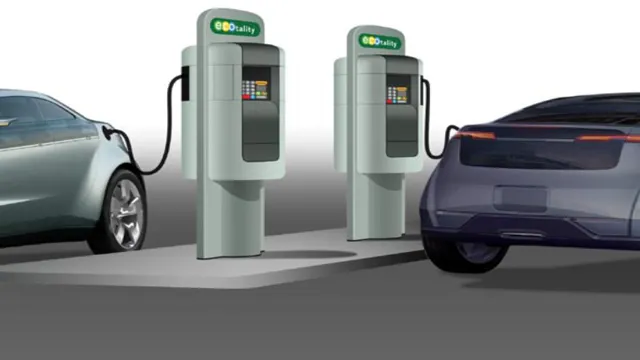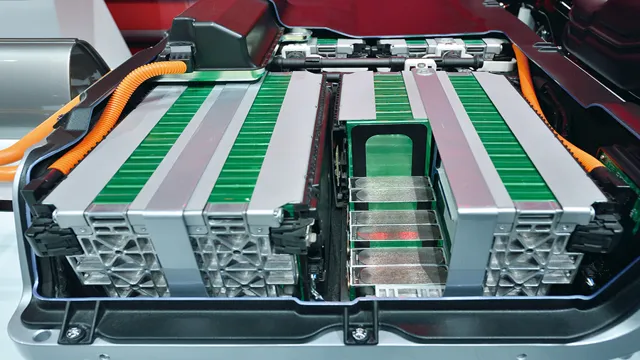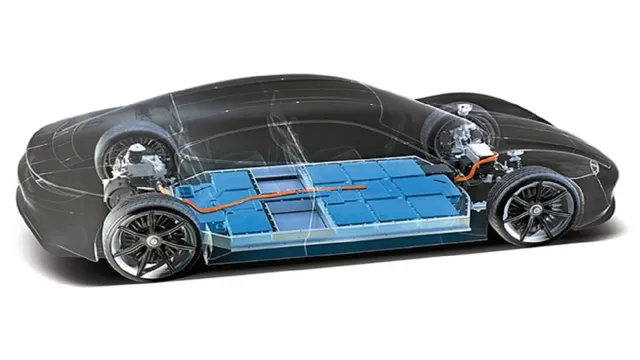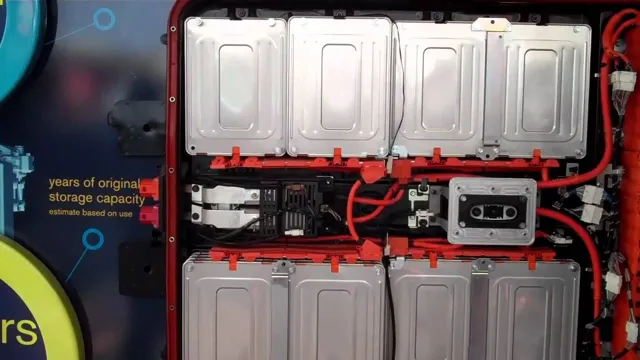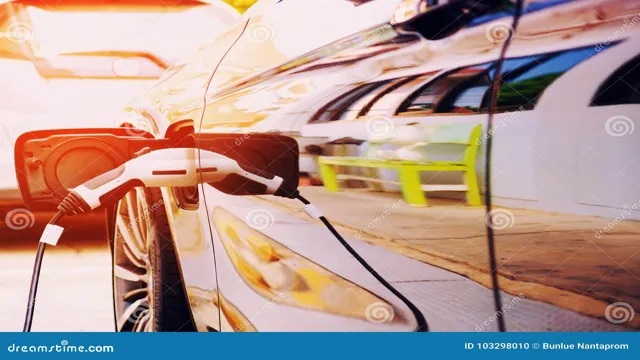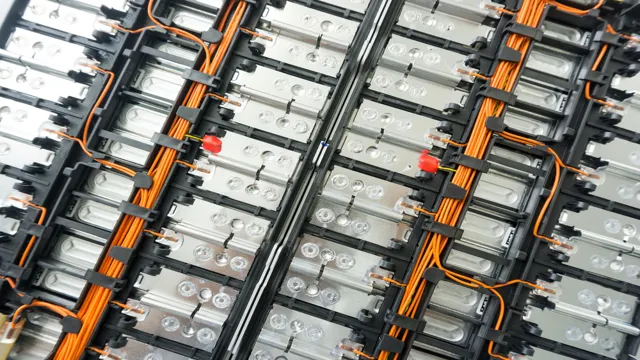Revolutionizing the Road: Electric Car Battery Fast Charging – The Future is Here!
As electric vehicles become more popular, one of the biggest concerns for drivers is the battery. How long will it take to charge? How much range will I get from a single charge? Luckily, with advancements in technology, fast charging is now a reality. But how exactly do you fast charge your electric car battery? In this blog post, we’ll dive into everything you need to know to fast charge your EV and hit the road with confidence.
From understanding charging levels to identifying compatible charging stations, we’ve got you covered. Get ready to take your driving experience to the next level with fast charging.
Understanding EV Batteries
When it comes to electric car battery fast charging, there are a few things to keep in mind. Firstly, not all EV batteries are created equal. Some batteries are designed to handle fast charging better than others, and some manufacturers may have different recommendations for charging speed.
It’s important to follow the manufacturer’s guidelines to ensure that you’re not damaging the battery or shortening its lifespan. Additionally, the charging infrastructure in your area can have an impact on how quickly you can charge your EV. While some areas have high-speed charging stations, others may only offer slower charging options.
It’s important to plan your route accordingly and keep charging times in mind. Lastly, it’s worth noting that fast charging can sometimes incur additional fees, so it’s important to factor that into your budget when considering an EV.
Explaining battery capacity and charging speeds
As electric vehicles continue to grow in popularity, it’s important to understand the technicalities of their batteries. Simply put, the capacity of an EV battery determines how far it can travel on a single charge. This capacity is measured in kilowatt-hours (kWh), with higher numbers generally indicating longer ranges.
However, it’s important to note that driving habits, weather, and other variables can all affect how far an EV can go on a single charge. Additionally, charging speeds can vary depending on the type of charger being used. Level 1 charging, which uses a standard household outlet, is the slowest method and typically takes several hours to fully charge an EV battery.
Level 2 charging, which uses a dedicated charging station, is faster and can fully charge a battery in a few hours. Finally, DC fast charging is the quickest option and can charge an EV battery to 80% in as little as 30 minutes. Understanding the capacity and charging speeds of EV batteries can help drivers make informed decisions about their needs and properly plan for their travels.
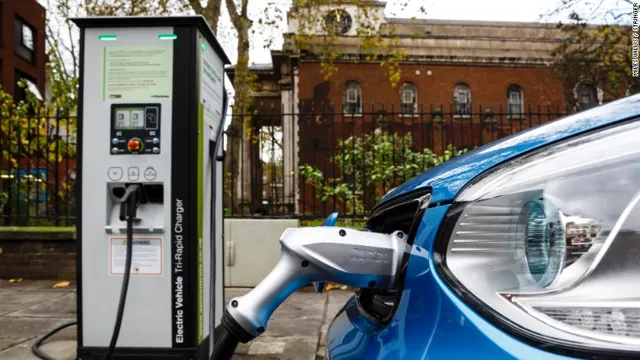
Why fast charging is important for EV owners
As more and more people switch to electric vehicles, understanding the batteries that power them becomes increasingly important. Unlike the gas tanks in traditional cars, EV batteries need to be charged to keep the vehicle going. This is where fast charging comes in.
Fast charging allows EV owners to quickly replenish their battery, giving them more time on the road and less time at charging stations. But it’s not just about convenience – fast charging also plays a crucial role in reducing range anxiety. Knowing that you can quickly recharge your car’s battery goes a long way in easing concerns about running out of power before reaching your destination.
That’s why EV manufacturers are working to develop increasingly efficient and faster charging systems, helping to make electric vehicles a more practical and attractive option for drivers.
Fast Charging Options
If you’re an owner of an electric car, you know that fast charging is crucial. With electric car battery fast charging, you can charge up your car in a matter of minutes, rather than hours. There are several fast charging options available, including Level 2 and DC fast charging.
With Level 2 charging, 240-volt electricity is used, allowing you to charge up in just a few hours. However, DC fast charging is the way to go if you want to charge up quickly. These fast charging stations can give you an 80% charge in as little as 30 minutes.
It’s also important to note that not all electric cars can accept fast charging, so be sure to check your car’s capabilities before investing in a fast charging station. So, next time you’re planning a long road trip in your electric car, make sure to plan ahead and locate fast charging stations along the way.
Comparing charging solutions – wall charger vs. charging stations
Fast charging is a crucial factor to consider when comparing wall chargers to charging stations. While wall chargers are convenient for charging devices overnight, they may not provide the lightning-fast charging speeds that many users seek. On the other hand, charging stations use higher wattage, providing faster charging options for those who need their device charged quickly.
It’s like choosing between a garden hose and a fire hose. While both can get the job done, the fire hose provides more water power in a shorter amount of time. In the same way, charging stations deliver more power, allowing for quicker recharging times.
If you’re always on the go or need your device to charge quickly, a charging station might be the better option for you. But for those who have the luxury of time and prefer a more simple setup, wall chargers can still be a reliable option for everyday use.
Features that affect fast charging speed
Fast charging options are highly sought after by smartphone users who are always on the go and need their devices to stay charged and ready. There are several factors that play a role in how fast a device can be charged, including the charging capacity of the device, the charging cable and adapter, and the device’s battery capacity. One of the most popular options for fast charging is Quick Charge, a technology developed by Qualcomm that allows devices to charge up to four times faster than traditional charging methods.
Another option is USB Power Delivery (PD), which is becoming increasingly popular due to its ability to charge both smartphones and laptops with the same adapter. Ultimately, the key to fast charging is to choose a charging option that is compatible with your device and provides the necessary power to quickly charge your battery. So, the next time you’re looking to fast charge your smartphone, consider these options to get the most out of your charging experience.
Popular fast charging providers and their networks
Fast charging options have become increasingly popular among electric vehicle (EV) drivers. One of the most well-known fast charging providers is Tesla, with their Supercharger network offering 250 kW charging speeds for Tesla vehicles. However, other companies such as ChargePoint, EVgo, and Electrify America have also built their own fast charging networks across the US.
ChargePoint offers Level 2 and DC fast charging with speeds up to 400 kW, while EVgo has over 800 fast charging locations with 50-350 kW charging speeds. Electrify America provides high-powered charging up to 350 kW and has over 540 charging stations across the country. The increase in available fast charging options makes it easier for EV drivers to travel longer distances without worrying about running out of battery power.
Tips for Maximizing Fast Charging Efficiency
Electric car battery fast charging is becoming more prevalent with the rise in popularity of electric vehicles. However, it is important to maximize the efficiency of fast charging in order to get the most out of your battery and save time. One tip is to avoid letting your battery drain completely before charging.
This can cause the battery to work harder to charge, reducing its overall lifespan. Additionally, it is recommended to use a high-quality, compatible charger and avoid charging in extreme temperatures. Another helpful tip is to charge your battery to 80% instead of 100%.
While this may not provide a full charge, it can significantly reduce charging time while still providing enough charge for most daily needs. By following these tips, electric car owners can maximize the efficiency of their fast charging and increase the overall life of their battery.
Maintain and optimize battery health
Battery health is crucial when it comes to maximizing fast charging efficiency. It’s essential to keep your battery in good condition to ensure it can handle the high charging currents required for quick charging. One tip for maintaining good battery health is to keep your device’s battery level between 20% and 80%.
Charging your battery often can be beneficial; however, it’s important not to overcharge it. Overcharging can cause battery degradation and reduce its overall lifespan. Another tip is to avoid charging your phone overnight.
Instead, try to keep your charging sessions short and frequent to prevent excessive heat buildup, which can be detrimental to your battery’s health. Lastly, it’s important to use the right charger for your device to avoid damaging the battery or reducing charging efficiency. Remember, taking proper care of your battery can help you maximize your fast charging capabilities and extend the life of your device.
Minimize external factors that affect charging speed
To get the most out of fast charging, it’s essential to minimize external factors that can impact charging speed. One tip for maximizing efficiency is to use the right charger for your device. Different chargers have different power outputs, and if you use a charger that doesn’t match your device’s specifications, you may not get the fastest possible charging speed.
It’s also a good idea to avoid charging your device in hot or cold environments, as extreme temperatures can slow down the charging process. Additionally, make sure your device isn’t running any unnecessary apps or services while it’s charging, as this can increase charging time. By following these tips, you can ensure that your device charges as quickly and efficiently as possible, no matter where you are.
Future of Fast Charging Technology
Electric car battery fast charging is a rapidly developing technology that aims to revolutionize the way we think about transportation and energy consumption. As the demand for renewable energy sources grows, the focus on fast charging technology is increasingly important. Most modern electric cars can be fully charged within hours, but the expectation for the future is that this charging time will be reduced even further.
Some experts predict that electric car charging systems will be able to achieve a full charge in just a few minutes, making it more convenient and practical for people to own electric cars. With the advancements in charging technology, we are moving closer to a future where electric vehicles are the norm and fossil fuels are no longer necessary.
Conclusion
As the world transitions towards sustainable energy, electric cars have become the leader of the pack. But what good is an electric car if it takes hours to charge? That’s where fast charging comes in. With the ability to charge an electric car battery in just minutes, the convenience of an electric car has surpassed that of a traditional gas-guzzler.
So, the next time you’re stuck at a charging station, just remember – a few minutes of waiting will take you miles ahead on the road to a greener future.”
FAQs
What is fast charging for electric car batteries?
Fast charging is a technology that allows electric car batteries to charge more quickly than traditional charging methods. With fast charging, drivers can typically charge their battery to 80% or more in just 30-45 minutes.
What are the benefits of fast charging for electric car owners?
Fast charging provides several benefits for electric car owners, including reduced charging times, improved convenience, and increased range. With fast charging, drivers can spend less time waiting for their car to charge and can travel longer distances without worrying about running out of power.
Are all electric car batteries compatible with fast charging technology?
Not all electric car batteries are compatible with fast charging technology. To use fast charging, electric car owners must have a battery that is designed to support high charging rates. Additionally, not all fast chargers are compatible with all electric cars and batteries, so it’s important to check compatibility before using a fast charging station.
How does fast charging affect the lifespan of electric car batteries?
Fast charging can potentially reduce the lifespan of electric car batteries over time, as the high charging rates can put extra stress on the battery cells. However, advances in battery technology and charging algorithms have helped to mitigate this risk, and many electric car manufacturers provide warranties that cover battery degradation over time. It’s important for electric car owners to follow best practices for charging their batteries, such as avoiding frequent use of fast charging and avoiding charging to 100% capacity, in order to maximize battery lifespan.
